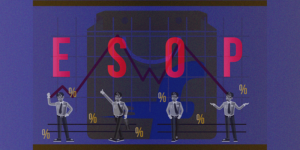During March 26 to April 3, ASCI screened 35 ads from the category
As stated by the association, ASCI is keeping a tab on TV as well as OTT ads
285 social media ads related to online real-money gaming companies were identified breaking the ASCI code in March

With increasing popularity and user adaptation, the real-money gaming sector has seen steady growth in the last two years. But like other emerging sectors, real-money gaming has also come under the regulatory scrutiny multiple times. For example, the sector faced blanket bans from state governments, although struck down by high courts later. In between these, real-money gaming players have upped their marketing games significantly for higher awareness and consumer acquisition.
And here the ASCI has tightened its noose around those advertisements. While the first week of Indian Premier League (IPL) 2022 has witnessed high-decibel advertising from the online real-money gaming industry, the Advertising Standards Council of India (ASCI) has marked 14 ads as being in potential violation of its code. As stated by the advertising watchdog, it is monitoring television commercials as well as ads that are being displayed on over-the-top (OTT) platforms.
During March 26 to April 3, ASCI screened 35 ads from the category, it said in a press statement. Further, 285 social media ads related to online real-money gaming companies were identified breaking the ASCI code in March.
“ASCI is concerned to note that, despite clear guidelines, some online real-money gaming firms are attempting a shortcut. For an industry that is under significant regulatory scrutiny, such acts by some companies paint the entire industry as irresponsible,” Manisha Kapoor, chief executive officer and secretary general of ASCI said.
“IPL, being a massive platform, requires responsible behaviour from all parties – including gaming firms, broadcasters, celebrities and ad creators. We hope that all parties play their roles to ensure that consumers are not exposed to misleading advertising,” Kapoor added.
It is to be noted that ASCI guidelines on real-money gaming came into effect on December 15, 2020. According to the guidelines, any such gaming advertisements can’t be aimed at minors, can’t present gaming as a source of livelihood or link it to success.
As ASCI has always emphasised on consumer protection, the industry body also mandated all real-money gaming advertisements to carry a prominent disclaimer regarding the risk of financial loss and the addictive nature of such games. As it said, “This game involves an element of financial risk and may be addictive. Please play responsibly and at your own risk.”
Later, the Ministry of Information and Broadcasting also issued an advisory asking that advertisements adhere to the guidelines. The ministry asked all private television broadcasters to follow guidelines issued by ASCI for advertisements relating to online gaming, fantasy sports.
In some of the advertisements, dubious claims such as ‘India’s biggest 1st prize’ were made , and in many cases the disclaimer informing consumers of the risks was flashed very quickly rather than at a normal speaking pace, ASCI found.
“In some cases, the advertisements had celebrities acting while the disclaimer was being spoken, distracting consumers from important information about risks. Some advertisements had disclaimers that were smaller than what has been prescribed,” ASCI added further.
The industry body has also cautioned that these attempts at glossing over the disclaimers on risks of financial loss or game addiction, can severely compromise consumer interest. Hence, it has urged gaming industry bodies to take up this issue with their members.
In India, the popularity of real-money gaming has skyrocketed in the last couple of years. More importantly, gamers in India are also loosening the purse strings. According to a recent report by EY and FICCI, the paying gamers in India increased by 17% from 80 Mn in 2020 to 95 Mn in 2021. While the online gaming segment grew 28% in 2021 to reach INR 101 Bn, real-money gaming comprised more than 70% of segment revenues, the report revealed.
Despite regulatory uncertainties, investors also have a positive sentiment towards the sector. For instance, gaming startup Games24x7 recently raised $75 Mn in a funding round led by Malabar India Fund at $2.5 Bn valuation to become the 99th unicorn of India. Last year, Dream Sports, the parent firm of fantasy sports platform Dream11, completed an investment round of $840 Mn at a valuation of $8 Bn.








![Read more about the article [Funding alert] Y-Combinator backed fintech startup Karbon Card raises $15M in Series A round](https://blog.digitalsevaa.com/wp-content/uploads/2022/02/Featureimages-newdeck31-1644391458470-300x150.png)
